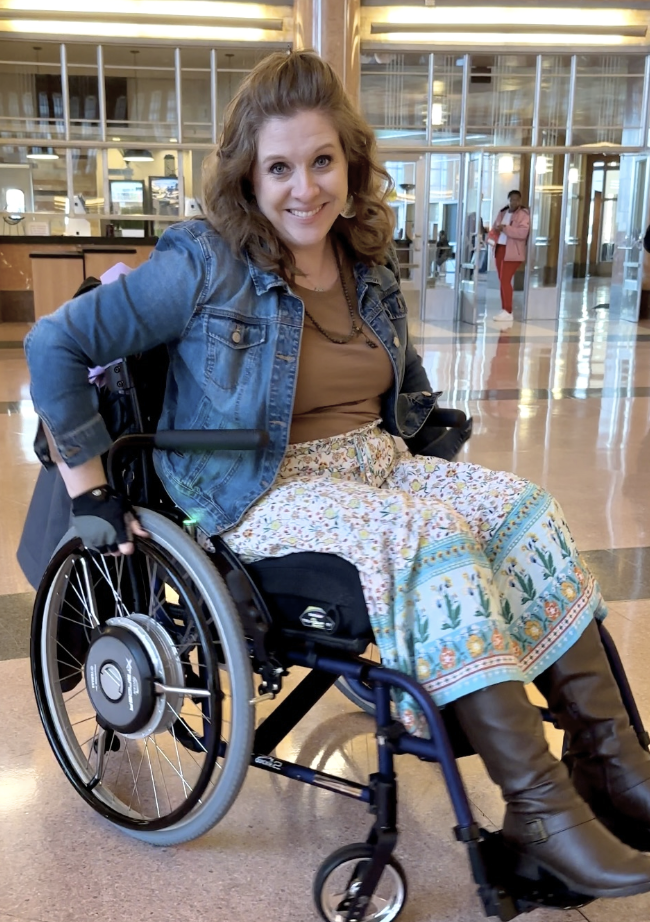Living with a chronic illness is challenging. It affects every aspect of your life, from your physical health to your mental well-being. I know from personal experience. I don’t remember a time when I wasn’t in constant pain. This is very common among survivors of childhood trauma.

Did you know?
Studies have shown that individuals who experienced childhood abuse are at a higher risk of developing chronic illnesses such as heart disease, diabetes, and autoimmune disorders. This is because of toxic stress that has been running through your body from a young age.
Childhood trauma can also lead to somatic dysfunction which can significantly impact your overall health and well-being. When trauma is experienced, especially at a young age, it can create lasting changes in the way the body functions.
Somatic dysfunction refers to the impaired or altered function of bodily structures, including muscles, joints, and the nervous system. This can manifest in various physical symptoms such as chronic pain, tension, digestive issues, and even autoimmune conditions.
Coping with a chronic illness requires patience, resilience, and a willingness to adapt to a new normal. It can be a hard pill to swallow (no pun intended), but acceptance is key. Not acceptance of defeat but of needing to adjust to a new life.
How do you accept living with a chronic illness?
Accepting a chronic illness is an ongoing process that takes time and effort. Trust me when I say that it’s not easy, and it’s not linear. Some days are going to be more difficult. On those bad days, it’s important to rely on the tools you built on your good days.
Tips to help you cope with chronic illness

1. Educate yourself about your condition.
Learn as much as possible about your illness, including its symptoms, causes, and treatments. This can help you feel more in control and reduce anxiety.
For me, this has been important when it comes to finding answers. I’ve learned on my journey with chronic illness that doctors are human and flawed, just like the rest of us. They don’t have all the answers, and sometimes they are wrong.
When you are informed about your condition, you can speak up for yourself when needed. You can also find other ways to find relief, like through functional medicine.
2. Connect with others who have a chronic illness.
Join a support group or connect with others online. Talking to people who understand what you’re going through can be comforting and reassuring.
This can be an absolute game-changer. When you are constantly surrounded by family and friends who can’t understand, it’s very isolating. Unfortunately, this can also lead to medical gaslighting from people who can’t comprehend what you’re facing daily.
3. Focus on what you can control.
Although you may not be able to manage your illness, you can control how you respond to it. This is hard. Trust me, I know it’s hard. One of the best things you can do to help yourself mentally and emotionally is to focus on what you can do to improve your quality of life.
4. Practice self-compassion.
Living with a chronic illness can be tough, and being kind to yourself is essential. Be gentle with yourself and acknowledge that sometimes it’s okay to feel frustrated or upset. I’ve been coping with chronic illness for decades.
I still have days where I get very angry. I let myself feel the anger… and let it go. I used to stay in that anger, but now I know it doesn’t serve me. Learning to let go of that anger has helped me heal emotionally, mentally, and physically. You might not believe it, but anger does more damage to your body.
How do you live a happy life when living with a chronic illness?
If you’ve been suffering from a chronic for a long time, living a happy life can feel nearly impossible. I felt that way for a long time too. I want you to know you can live a happy life with chronic illness. You have to make some adjustments.

Accept that you have to do life differently from others. This is so important that I can’t emphasize it enough.
When you accept your new reality, you open the door to new possibilities. This does not mean you are admitting defeat; it simply means you are acknowledging the challenges you face and choosing to adapt to them in a positive way.
1. Set realistic goals.
Set goals that are achievable and meaningful to you. This can help you feel a sense of purpose and accomplishment.
2. Find activities that you enjoy.
Engage in activities that make you feel good, whether it’s reading, gardening, or spending time with loved ones.
3. Practice self-care.
Take care of your physical and mental health by getting enough sleep, eating well, and practicing relaxation techniques like meditation or yoga.
Living with a chronic illness is not easy, but it’s important to remember that you’re not alone. You can overcome the challenges by accepting your condition, focusing on what you can control, and finding ways to live a happy and fulfilling life. Remember to be kind to yourself and seek support when you need it.
Finally, please know that finding trauma-informed care is crucial for anyone who has experienced trauma, as it ensures that the treatment you receive is sensitive to your past experiences and addresses your unique needs.
Trauma-informed care involves healthcare providers who understand the complex impact of trauma on an individual’s life and are trained to create a safe and supportive environment. These professionals prioritize your emotional and physical safety, fostering a sense of trust and empowerment.














